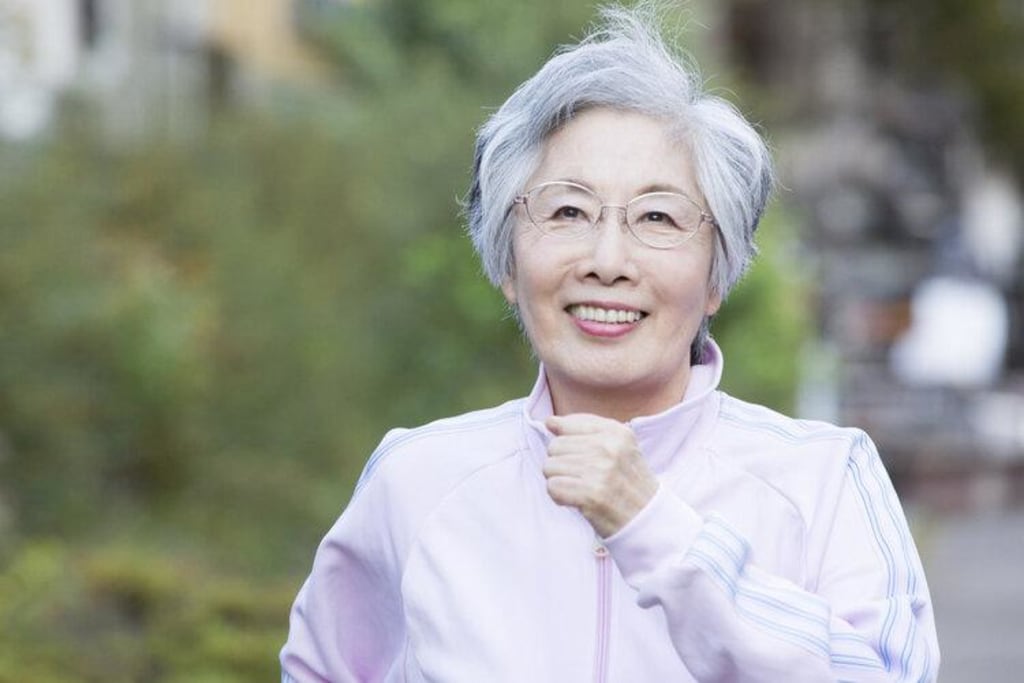Who will live longer if they walk fast and walk slowly?
Older people walking, do these points

"Walk 10,000 steps a day for good health!"
Old Wang has always believed in this "rule", thinking walking is the best exercise, every day with a pedometer, walk 10,000 steps. This is not today a meal, the old king and hurriedly go out, the faster you walk in the park, not expect a short time, the stomach pain up ......
A, walking fast or walking slowly good? How much does to walk? New research results are out
With the emergence of the step count list, the daily list of "battles" is very intense. Nowadays, to get to first place, it has to start with 30,000 steps. Is it true that the more you walk, the better?
Recently, published in JAMA Internal Medicine, a joint large prospective study from the University of Sydney, Australia, and the University of Southern Denmark, researchers included 78,000 reference subjects, with a follow-up period of up to seven years, found that.
1, 10,000 daily steps have the greatest benefit
Walking 10,000 steps a day can reduce the risk of cardiovascular disease, cancer, and other chronic diseases, and is associated with a reduced risk of all-cause mortality. But after reaching about 10,000 steps, the number of steps continues to increase, it may be "ineffective" walking, or even counterproductive.
2. Walking fast is better than walking slow
To make the data more convincing, the researchers also gave the participants to wear a wristband that can accurately collect the movement of the situation. After adjusting for multiple factors, the study found that people who walked faster every day (>40 steps/minute pace) had more health benefits than those who walked slower every day (<40 steps/minute pace). Even with shorter walking times, walking faster (112 steps/minute) was more effective than walking 10,000 steps per day.
As soon as many people see this study, they immediately feel that they need to walk enough 10,000 steps a day, and the faster they walk, the better, is this reliable? Ai suggests that we should act according to our ability.
Second, walking is good medicine for longevity, but some people walk waste their knees
Chinese Academy of Engineering Zhang Boli academician share their own health experience, claiming that there is no magic, is to insist on walking, a walk is 20 years, and adhere to seven or eight thousand steps a day. He pointed out that walking is the best exercise for the elderly, it is recommended that the elderly can best walk every day to accumulate 6,000-7,000 steps, can walk a little faster, so that the heart rate is faster, slightly sweating is the best state.
Walking is good for health, but walking too much, good medicine may also become "poison".
Aunt Wang, who lives in the northeast, suffers from high blood pressure and hyperlipidemia, and after retirement, she insists on exercising every day and walking around the neighborhood for a while after breakfast every day. Since knowing the step count chart, Auntie Wang began a variety of "walking", less than 5,000 steps, and more than 20,000 steps. However, one day, when she went upstairs, she suddenly felt pain in her left knee, which did not ease for a week, and then went to the orthopedic hospital for examination, and was found to have knee arthritis.
The daily 10,000 steps have little effect on the average person, walking, can effectively improve joint flexibility, and promote blood circulation throughout the body, to avoid osteoporosis. But for the frail and sickly, the elderly, according to their physical condition, are not forced. The elderly themselves gradually degenerate body functions, bone, and joint, and other functional degeneration inflammation, once into high-intensity fitness, the degree of wear and tear of the knee joint will strengthen, which is likely to cause irreversible damage.
Third, a hundred steps after meals, live to ninety-nine, walking after meals is good?
After a full meal, many people will be used to walking, promoting intestinal peristalsis, and helping digestion. But from the perspective of the digestive organs, exercise immediately after meals are not scientific.
When we have a full meal, the stomach is full up, this time must ensure that the gastrointestinal tract has an adequate blood supply, so that the stomach began the initial digestion, and the relatively static state is more conducive to stomach digestion. If you get up and walk in a hurry, the blood will run to all the limbs, delaying the secretion of digestive juices, but easy to cause indigestion.
That after eating, immediately lying down okay?
After the food is in the stomach, the esophageal end sphincter will begin to contract, so that the gastric spout connected to the opening becomes narrower, to prevent the backflow of gastric contents. If you lie down immediately after a meal, it is easy to cause the filling state of the stomach will move position, food in the gravitational effect of the center of gravity, reflux from the spout back into the esophagus, causing acid reflux, heartburn, and other phenomena.
So, when is the best time to walk after a meal?
In the 20-30 minutes after eating, the stomach finished the initial work, at this time walking, can promote gastrointestinal peristalsis, more help digestive juice secretion and food absorption.
Fourth, the elderly walk, do these points
Many older people think, is not walking, walking who will not? However, some walking misconceptions, it is very easy to make the already fragile joints occur serious wear and tear.
1, try not to take the slope
Older people should try to choose flat roads, climbing or downhill for the knee is more strenuous, and will increase the wear and tear of the joints. For the elderly without arthritis, who want to enhance the exercise effect, you can choose a short slope for climbing, suffering from osteoporosis or coronary heart disease, and for other elderly, it is not recommended to walk on the slope.

2, maintain balance
When the elderly walk, should be appropriate to throw away the arms, to help the body play a certain role in balance, to prevent accidental falls, but also exercise the shoulder.
3、Pay attention to hydration
Before and after the walk should pay attention to the appropriate amount of hydration, after the walk, if the heartbeat has been restored, you can replenish water in small sips several times, but avoid drinking too cold water, easy to stimulate the gastrointestinal.
4、Wear softer shoes
Choosing a pair of comfortable shoes for walking can help reduce the impact of the ground on the knee joints, and the elderly should have a pair of soft-soled, flexible sports shoes.
The daily walk is good for health, but not the more walking the better, for the frail and the elderly, we must pay attention to the strength of the line, walking is for health, not to "fight", if the eyes only put on the list of honors, and forget the original purpose of the movement, it is likely to let the body walk more and more "injury ".
About the Creator
Hosten Cluver
I know that someone in this world is waiting for me, even though I don't know who he is. But because of this, I am very happy every day.






Comments
There are no comments for this story
Be the first to respond and start the conversation.